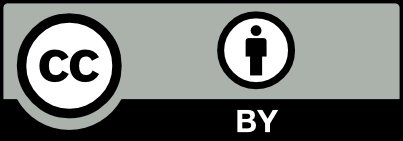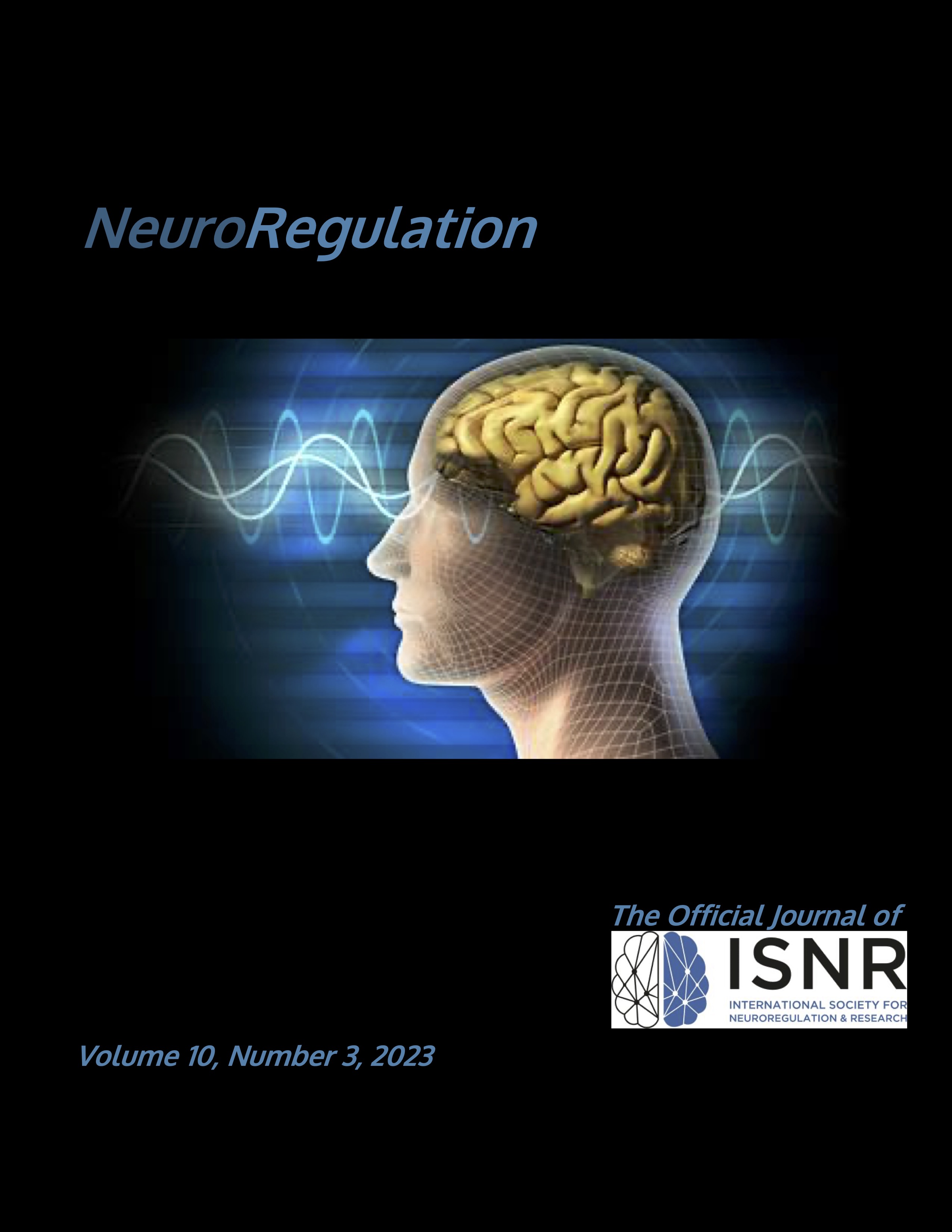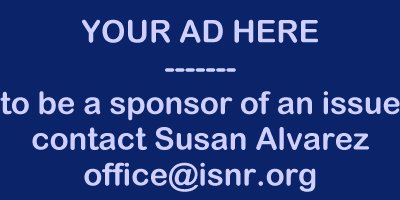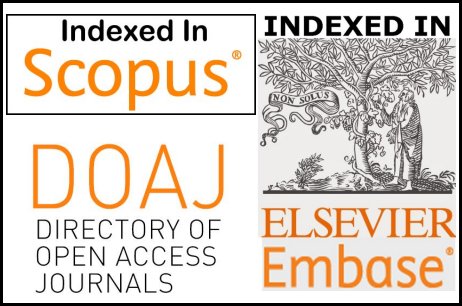A Scoping Review on Integration of Electroencephalogram Neurofeedback Training for Alcohol Use Disorder: Clinical and Neurocognitive Outcomes
DOI:
https://doi.org/10.15540/nr.10.3.179Keywords:
neurofeedback training, Alcohol Use Disorder, Stress, stress; response inhibition, relapseAbstract
Background. The conventional treatment for alcohol use disorder (AUD) consists of dual treatment encompassing pharmacotherapy and psychotherapy. Nonetheless, the impact of these treatments on clinical and neurocognitive outcomes is only low to medium efficacy. Research studies substantiate the integration of electroencephalogram neurofeedback training (EEG-NFT) as an add-on tool with significant improvements in clinical and neurocognitive outcomes. Methods. A scoping review of the existing literature on EEG-NFT and AUD, which are open access, including review papers and empirical studies in the English language, and with human subjects are deemed worthy of the scope of this study. The keywords electroencephalogram neurofeedback training, alcohol use disorder, stress, neurocognition, and relapse were used. The primary sources of the literature search were Science Direct, Scopus, PubMed, and Google Scholar. A total of 35 articles have been included in the scoping review. Studies from the last 15 years were considered for the same. Results. This review revealed that EEG-NFT is a promising tool with significant improvements in stress levels, cognitive deficits, and relapse rates for individuals with AUD when used in integration with conventional treatments. Conclusion. Chronic alcohol use affects cognitive functions, escalates relapse rate, and increases stress experienced by the individual. The present study highlights the significance of NFT as a potent add-on treatment modality to improve clinical and cognitive outcomes, thereby facilitating abstinence and reducing relapse rates in individuals with AUD.
References
Althaus, J., Zendle, D., & Bowden-Jones, H. (2021). Gambling and gaming addictions in women. In N. El-Guebaly, G. Carrà, M. Galanter, & A. M. Baldacchino (Eds.), Textbook of addiction treatment (pp. 943–953). https://doi.org/10.1007/978-3-030-36391-8_66
Bernardin, F., Maheut-Bosser, A., & Paille, F. (2014). Cognitive impairments in alcohol-dependent subjects. Frontiers in Psychiatry, 5, 78. https://doi.org/10.3389/fpsyt.2014.00078
Breese, G. R., Sinha, R., & Heilig, M. (2011). Chronic alcohol neuroadaptation and stress contribute to susceptibility to alcohol craving and relapse. Pharmacology & Therapeutics, 129(2), 149–171. https://doi.org/10.1016/j.pharmthera.2010.09.007
Cannon, R. L. (2015). Editorial perspective: Defining neurofeedback and its functional processes. NeuroRegulation, 2(2), 60–69. https://doi.org/10.15540/nr.2.2.60
Czapla, M., Simon, J. J., Richter, B., Kluge, M., Friederich, H.-C., Herpertz, S., Mann, K., Herpertz, S. C., & Loeber, S. (2016). The impact of cognitive impairment and impulsivity on relapse of alcohol-dependent patients: Implications for psychotherapeutic treatment. Addiction Biology, 21(4), 873–884. https://doi.org/10.1111/adb.12229
Dacosta-Sánchez, D., González-Ponce, B. M., Fernández-Calderón, F., Rojas-Tejada, A. J., Ordóñez-Carrasco, J. L., & Lozano-Rojas, O. M. (2021). Profiles of patients with cocaine and alcohol use disorder based on cognitive domains and their relationship with relapse. Drug and Alcohol Dependence, 218. https://doi.org/10.1016/j.drugalcdep.2020.108349
Dalkner, N., Unterrainer, H. F., Wood, G., Skliris, D., Holasek, S. J., Gruzelier, J. H., & Neuper, C. (2017). Short-term beneficial effects of 12 sessions of neurofeedback on avoidant personality accentuation in the treatment of alcohol use disorder. Frontiers in Psychology, 8, 1688. https://doi.org/10.3389/fpsyg.2017.01688
Dousset, C., Kajosch, H., Ingels, A., Schröder, E., Kornreich, C., & Campanella, S. (2020). Preventing relapse in alcohol disorder with EEG-neurofeedback as a neuromodulation technique: A review and new insights regarding its application. Addictive Behaviors, 106, 106391. https://doi.org/10.1016/j.addbeh.2020.106391
Emmert, K., Kopel, R., Sulzer, J., Brühl, A. B., Berman, B. D., Linden, D. E. J., Horovitz, S. G., Breimhorst, M., Caria, A., Frank, S., Johnston, S., Long, Z., Paret, C., Robineau, F., Veit, R., Bartsch, A., Beckmann, C. F., Van De Ville, D. & Haller, S. (2016). Meta-analysis of real-time fMRI neurofeedback studies using individual participant data: How is brain regulation mediated? NeuroImage, 124(Part A), 806–812. https://doi.org/10.1016/j.neuroimage.2015.09.042
Everitt, B. J., Belin, D., Economidou, D., Pelloux, Y., Dalley, J. W., & Robbins, T. W. (2008). Neural mechanisms underlying the vulnerability to develop compulsive drug-seeking habits and addiction. Philosophical Transactions of the Royal Society B: Biological Sciences, 363(1507), 3125–3135. https://doi.org/10.1098/rstb.2008.0089
Fein, G., & Cardenas, V. A. (2015). Neuroplasticity in human alcoholism: Studies of extended abstinence with potential treatment implications. Alcohol Research: Current Reviews, 37(1), 125–141. https://pubmed.ncbi.nlm.nih.gov/26259093
Feldstein Ewing, S. W., & Chung, T. (2013). Neuroimaging mechanisms of change in psychotherapy for addictive behaviors: Emerging translational approaches that bridge biology and behavior. Psychology of Addictive Behaviors, 27(2), 329–335. https://doi.org/10.1037/a0031491
Feldstein Ewing, S. W., Filbey, F. M., Sabbineni, A., Chandler, L. D., & Hutchison, K. E. (2011). How psychosocial alcohol interventions work: A preliminary look at what fMRI can tell us. Alcoholism: Clinical and Experimental Research, 35(4), 643–651. https://doi.org/10.1111/j.1530-0277.2010.01382.x
Feldstein Ewing, S. W., Yezhuvath, U., Houck, J. M., & Filbey, F. M. (2014). Brain-based origins of change language: A beginning. Addictive Behaviors, 39(12), 1904–1910. https://doi.org/10.1016/j.addbeh.2014.07.035
Gadea, M., Aliño, M., Hidalgo, V., Espert, R., & Salvador, A. (2020). Effects of a single session of SMR neurofeedback training on anxiety and cortisol levels. Neurophysiologie Clinique, 50(3), 167–173. https://doi.org/10.1016/j.neucli.2020.03.001
Ghosh, T., Jahan, M., & Singh, A. (2014). The efficacy of electroencephalogram neurofeedback training in cognition, anxiety, and depression in alcohol dependence syndrome: A case study. Industrial Psychiatry Journal, 23(2), 166–170. https://doi.org/10.4103/0972-6748.151705
Heilig, M., Augier, E., Pfarr, S., & Sommer, W. H. (2019). Developing neuroscience-based treatments for alcohol addiction: A matter of choice? Translational Psychiatry, 9(1), Article 255. https://doi.org/10.1038/s41398-019-0591-6
Ko, S., & Park, W. (2018). Effects of quantitative electroencephalography based neurofeedback training on autonomous regulations in patients with alcohol use disorder. Asian Nursing Research, 12(2), 136–144. https://doi.org/10.1016/j.anr.2018.05.003
Le Berre, A. P., Fama, R., & Sullivan, E. V. (2017). Executive functions, memory, and social cognitive deficits and recovery in chronic alcoholism: A critical review to inform future research. Alcoholism: Clinical and Experimental Research, 41(8), 1432–1443. https://doi.org/10.1111/acer.13431
López-Caneda, E., Cadaveira, F., Correas, A., Crego, A., Maestú, F., & Holguín, S. R. (2017). The brain of binge drinkers at rest: Alterations in theta and beta oscillations in first-year college students with a binge drinking pattern. Frontiers in Behavioral Neuroscience, 11, 168. https://doi.org/10.3389/fnbeh.2017.00168
Loriette, C., Ziane, C., & Ben Hamed, S. (2021). Neurofeedback for cognitive enhancement and intervention and brain plasticity. Revue Neurologique, 177(9), 1133–1144. https://doi.org/10.1016/j.neurol.2021.08.004
Madhusudhan, S., Anitha, A., & Ruth, S. (2021). Cognitive deficits and alcohol dependence syndrome—A paradigm relationship. The International Journal of Indian Psychology, 9(2), 564–571. https://doi.org/10.25215/0902.059
Marzbani, H., Marateb, H. R., & Mansourian, M. (2016). Methodological note: Neurofeedback: A comprehensive review of system design, methodology, and clinical applications. Basic and Clinical Neuroscience, 7(2), 143–158. https://doi.org/10.15412/j.bcn.03070208
Mohan, R., & Rajeshwaren, J. (2015). Stress- does brain and mind matter- EEG neurofeedback training in alcohol dependence syndrome. International Journal of Neurorehabilitation, 2(5), 2–5. https://doi.org/10.4172/2376-0281.1000187
Mumtaz, W., Vuong, P. L., Malik, A. S., & Rashid, R. B. A. (2018). A review on EEG-based methods for screening and diagnosing alcohol use disorder. Cognitive Neurodynamics, 12(2), 141–156. https://doi.org/10.1007/s11571-017-9465-x
Rangaswamy, M., & Porjesz, B. (2014). Understanding alcohol use disorders with neuro electrophysiology. In E. V. Sullivan, & A. Pfefferbaum (Eds.), Handbook of clinical neurology (1st ed., Vol. 125, pp. 383–414). Elsevier B. V. https://doi.org/10.1016/B978-0-444-62619-6.00023-9
Ros, T., Baars, B. J., Lanius, R. A., & Vuilleumier, P. (2014). Tuning pathological brain oscillations with neurofeedback: A systems neuroscience framework. Frontiers in Human Neuroscience, 8, 1008. https://doi.org/10.3389/fnhum.2014.01008
Ross, S. M. (2013). Neurofeedback: An integrative treatment of substance use disorders. Holistic Nursing Practice, 27(4), 246–250. https://doi.org/10.1097/HNP.0b013e3182971b7c
Rostami, R., & Dehghani-Arani, F. (2015). Neurofeedback training as a new method in treatment of crystal methamphetamine dependent patients: A preliminary study. Applied Psychophysiology Biofeedback, 40, 151–161. https://doi.org/10.1007/s10484-015-9281-1
Russo, G. M., Smith, S., & Sperandio, K. R. (2023). A meta-analysis of neurofeedback for treating substance use disorders. Journal of Counseling & Development, 101(2), 143–156. https://doi.org/10.1002/jcad.12466
Sebold, M., Müller, C. A., Garbusow, M., Charlet, K., & Heinz, A. (2021). Neurobiology of alcohol dependence. In N. El-Guebaly, G. Carrà, M. Galanter, & A. M. Baldacchino (Eds.), Textbook of addiction treatment (pp. 9–20). https://doi.org/10.1007/978-3-030-36391-8_2
Sinha, R. (2012). How does stress lead to the risk of alcohol relapse? Alcohol Research: Current Reviews, 34(4), 432–440. https://www.ncbi.nlm.nih.gov/pubmed/23584109
Sokhadze, T. M., Cannon, R. L., & Trudeau, D. L. (2008). EEG biofeedback as a treatment for substance use disorders: Review, rating of efficacy, and recommendations for further research. Applied Psychophysiology and Biofeedback, 33, 1–28. https://doi.org/10.1007/s10484-007-9047-5
Subramanian, L., Cox, W. M., Lührs, M., McNamara, R., Hood, K., Watson, G., Whittaker, J. R., Williams, A. N., Sakhuja, R., Ihssen, N., Goebel, R., Playle, R., & Linden, D. E. J. (2021). Erratum: Neurofeedback training versus treatment-as-usual for alcohol dependence: Results of an early-phase randomized controlled trial and neuroimaging correlates. European Addiction Research, 27(5), 395–397. https://doi.org/10.1159/000517465
Uscinska, M., Gagliano, N., & Ho-Yin Lai, F. (2021). The brain stress system in the neurobiology of the “dark side” of addiction and its relation to neurodegeneration. In N. E. Tunalı (Ed.), Neurodegenerative diseases - molecular mechanisms and current therapeutic approaches. https://doi.org/10.5772/intechopen.93152
Yonah, R. (2023). In neurofeedback training, harder is not necessarily better: The power of positive feedback in facilitating brainwave self-regulation. NeuroRegulation, 10(1), 31–41. https://doi.org/10.15540/nr.10.1.31
Downloads
Published
Issue
Section
License
Copyright (c) 2023 Shalini G. Panicker, Cathlyn Niranjana Bennett

This work is licensed under a Creative Commons Attribution 4.0 International License.
Authors who publish with this journal agree to the following terms:- Authors retain copyright and grant the journal right of first publication with the work simultaneously licensed under a Creative Commons Attribution License (CC-BY) that allows others to share the work with an acknowledgement of the work's authorship and initial publication in this journal.
- Authors are able to enter into separate, additional contractual arrangements for the non-exclusive distribution of the journal's published version of the work (e.g., post it to an institutional repository or publish it in a book), with an acknowledgement of its initial publication in this journal.
- Authors are permitted and encouraged to post their work online (e.g., in institutional repositories or on their website) prior to and during the submission process, as it can lead to productive exchanges, as well as earlier and greater citation of published work (See The Effect of Open Access).











